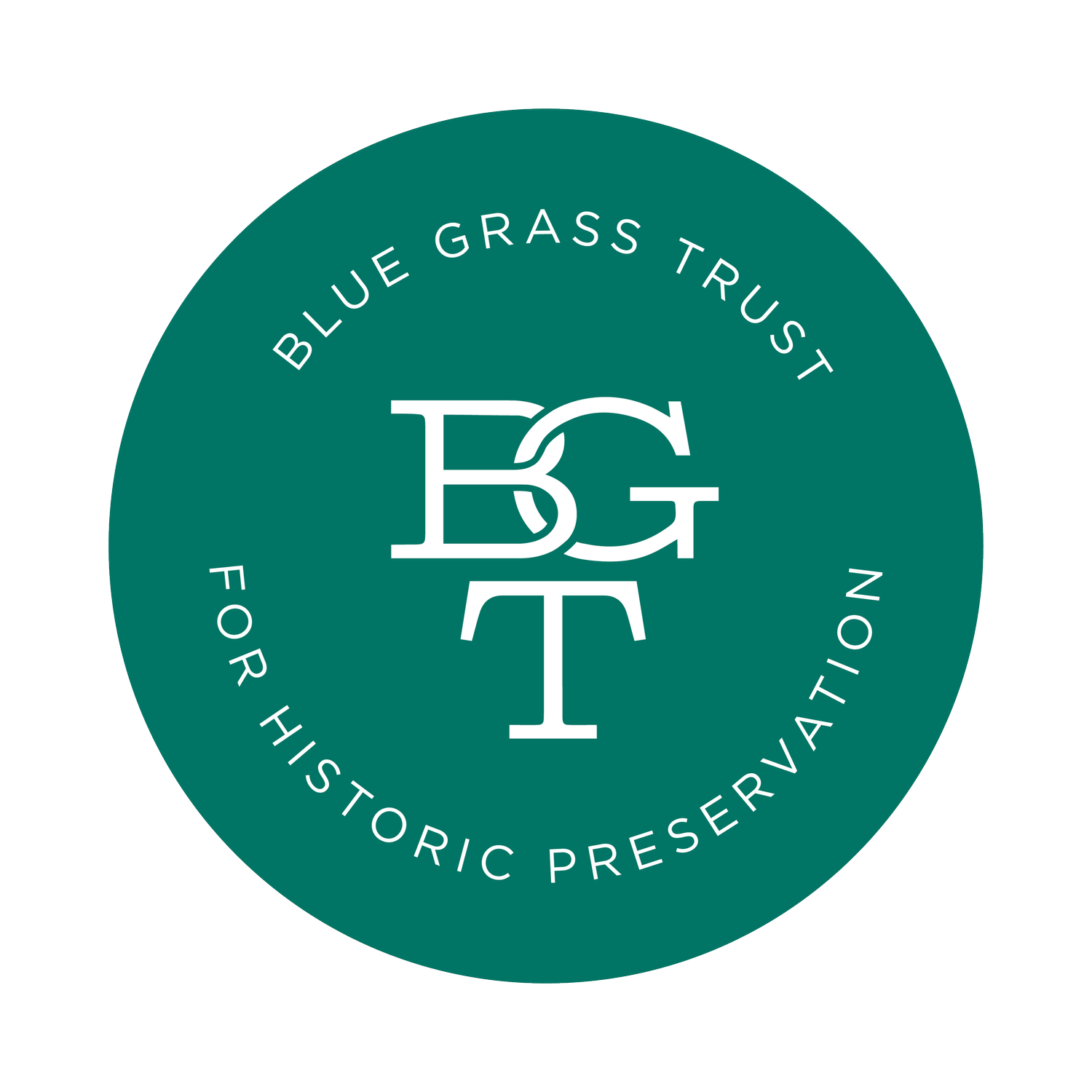National Register Designation Consulting Services
Achieve National Recognition for Your Historic Property
We’re here to guide you through the landmark nomination process.
Designating a historic property on the National Register of Historic Places may seem like a daunting prospect. But fear not, we are here to help! As part of our national register designation consulting services, we’ll determine your building’s significance and integrity to establish its eligibility. If it is a suitable candidate, we’ll then complete a full nomination and present our findings before the requisite local and state boards. Placement on the National Register ultimately rests with the National Park Service, but the Blue Grass Trust is an experienced hand at achieving favorable outcomes.
While designation does not protect the property from demolition or empower any governmental agency to exercise regulatory control over it, there are compelling reasons for pursuing this landmarking. Owners of National Register properties — both residential and income-generating — may be able to claim state and/or federal historic tax credits for rehabilitation projects. Additionally, some “brick-and-mortar” grants are only earmarked for buildings on the Register. And any federally-funded action that may impact a resource on the National Register triggers what is known as a Section 106 review, which is intended to mitigate adverse effects to historic assets.
Listing your property on the National Register of Historic Places is one of the most meaningful ways to honor and preserve its legacy. It can also open the door to tax credits and grant opportunities.
Our Services Include:
Evaluating your property's eligibility
Completing full nomination documentation
Presenting your case before local and state review boards
Service Fees:
Determination of Eligibility: Fayette County: $75/hour, surrounding counties: $100/hour
Full Nomination – Residential/Nonprofit: $6,000
Full Nomination – Income-Producing: $8,000
Final Listing Submission: $2,000
Blue Grass Trust National Register Nominations
Mentelle House (116 Lincoln Ave, Lexington)
Constructed around 1804 and rebuilt in the Gothic Revival style after a fire in the 1840s, this was the long-term home of the colorful Waldemar and Charlotte Mentelle, who had immigrated from France in the late eighteenth century. Charlotte operated a famous boarding school out of the house until 1860 and counted Mary Todd Lincoln amongst her pupils. In the 1880s, B. J. Treacy occupied the property and rented the surrounding land for his world-renowned Ashland Park Stock Farm.
The nomination offers extensive information on the Mentelles and education in early Kentucky, the harness horse breeding industry, and the broader development of the Kenwick neighborhood. It has been a privilege working with the Donahoe family, and we praise their ongoing efforts to preserve the Mentelle House for posterity.
“Your knowledge, resources, thoroughness and thoughtfulness were exceptional. You weren't afraid to lie on the floor to peek into the few inches of crawlspace or go down to the dirt-floored cellar to assess the age of materials and take pictures. All your hard work resulted in a complete and well-organized nomination form that we would have likely abandoned if left up to us. Plus you were a joy to work with!” - Chris and Pat Donahoe, Mentelle House owners
Luigart Malt House (110 Luigart Court, Lexington)
The Luigart Malt House complex consists of an adapted 1850s hemp house, an 1881 addition designed by Herman Rowe, and a 1922 extension facing N Limestone that showcases one of the most fanciful cast concrete facades in the region. German immigrant Joseph Luigart and his partner, William Harting, processed malt at this location from the early 1870s until 1896. Luigart’s descendants, who were well-known entrepeneurs in Lexington, then used the malt house for various purposes before converting it into the Dixieland Gardens dance hall in 1937, which served the neighborhood’s African-American community.
This National Register nomination explicates the Luigarts’ contributions to the boomtown development of the Loudon area, their role as leaders of the city’s German community, and the history of racial conflict in this sector of the city. As of 2025, the malt house complex contains the Lex Center for Creative ReUse, a capacious events space, artist studios, apartments, and retail units.
Is Your Property on the National Register of Historic Places?
Explore the State Historic Preservation Office’s GIS Map or consult the National Park Service’s masterlist (updated June 2025)
National Register Historic Districts in Fayette County
Let us put your building’s history on the map—literally.
Fill out the form below and a member from our team will be in touch to help you on your national registration designation journey!






